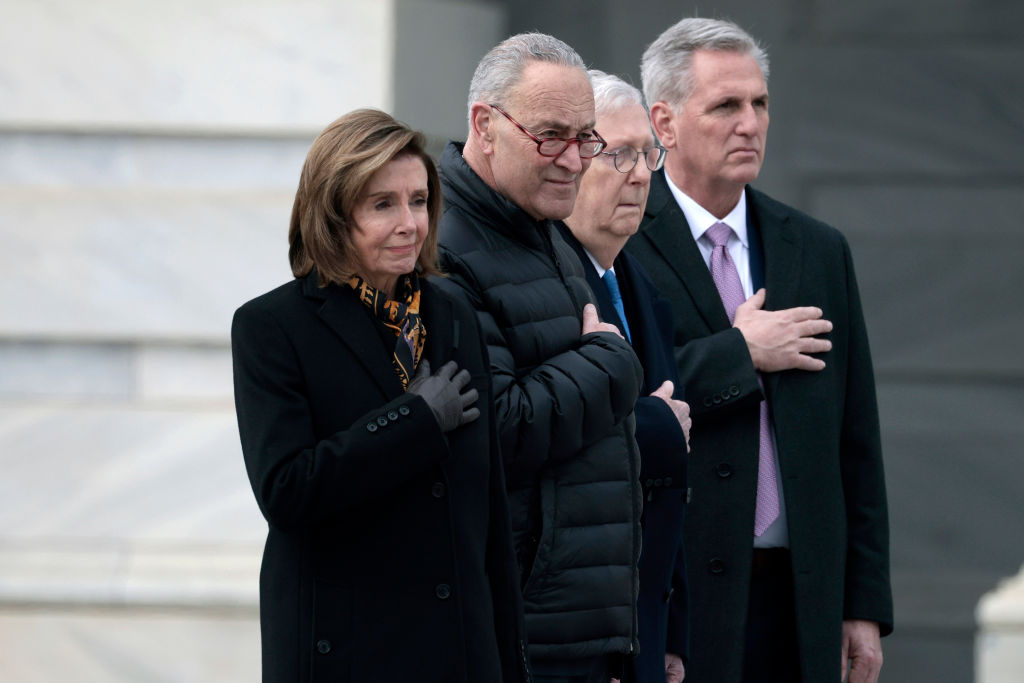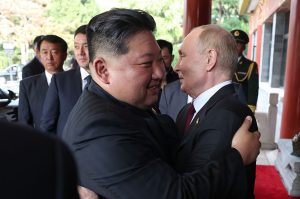President Joe Biden and his Democratic allies were expecting a romp on Tuesday. So were many of the career prognosticators surveying the election landscape. Instead, many of the close Senate races, including in all-important Georgia and Nevada, haven’t been called. Those of us who have been staring at the returns for hours on end still don’t know the full extent of the results.
But what can be said with reasonable certainty is that however the balance of power stacks up, foreign policy is likely to be the same as it ever was. The status quo is an all-powerful force inside the Beltway, where conventional wisdom rules the roost and any tilt away from the mainstream is usually corrected before an honest discussion can be had on the merits.
Part of this is institutional. Throughout history, presidents have had significant leeway in the realm of foreign affairs. The Constitution contains valuable guardrails that were established to prevent a so-called imperial presidency from emerging. But these days, presidential power has bloated to such an extent that a single individual in the Oval Office can order military action halfway around the world without anyone (with the exceptions of perhaps Senator Rand Paul and Congressman Ro Khanna) batting an eye about it. Congress has the crucial power to appropriate taxpayer money, but in terms of national security, the term “appropriating” typically translates into throwing more cash into the military apparatus than even the Pentagon wants.
There is a common belief that the two parties are divided on pretty much every issue under the sun. In terms of domestic policy, that may be true. But foreign policy is quite different. The contrasts in many ways aren’t about policy at all, but rather about gradations to the policy already on the books.
Nearly everyone in Washington’s power structure believes China, as the Biden administration’s National Security Strategy states, “is the only competitor with both the intent to reshape the international order and, increasingly, the economic, diplomatic, military, and technological power to do it.” Hardly anyone questions whether Russia would be better off without Vladimir Putin, even if a replacement is likely to be just as committed to undermining American power or causing fissures within Europe as Putin is. Primacy, or the notion that the United States has the duty to fight every wrong in the world no matter how inconsequential it may be to our security, as well as the responsibility to preserve an American-dominated unipolar system, is taken for granted. And barring some progressives who have tried to slash the defense budget, lawmakers on both sides of the aisle are more than happy to equate more military spending with more security (even if this popular correlation has been disproven time and again).
The one standout may be Ukraine. But even here, the debate isn’t so much about supporting Kyiv as how much support the US should provide (Washington has given Ukraine more than $18 billion in military aid since the war began in February). A Wall Street Journal poll last week found that 48 percent of Republicans said the US is doing too much for Ukraine, up from 6 percent in a prior survey. Rank-and-file conservatives are increasingly skeptical of more aid packages; likely future House speaker Kevin McCarthy essentially conceded as much in an interview last month.
Even so, the GOP at large doesn’t have a common position. Senate Minority Leader Mitch McConnell supports staying the course and even suggested the White House should accelerate the process of getting military assistance into Kyiv’s hands. The two points of view may eventually clash, but it’s reasonable to assume that Washington will continue to bankroll Kyiv’s war effort. The amounts may be smaller, but the checks will keep coming.
The more interesting part of the Ukraine debate is how the Europeans will react once all the votes are tallied. Burden-sharing, the idea of Europe taking more responsibility for its own defense and becoming the primary player in its own region, is increasingly popular in American policy circles. There’s no ignoring the fact that Europe’s contributions to Ukraine are peanuts compared to what Washington has provided. The Americans are growing tired of their European colleagues’ lackadaisical attitude and have nudged them to actually disburse the money they pledged (EU Commission President Ursula von der Leyen announced an €18 billion financial support package for Ukraine this week, although it still needs to be passed unanimously).
As the war goes on and its economic impacts continue to be felt at home, calls for the Europeans to deliver and embrace a greater leadership role will likely grow louder regardless of which party rules which house. On foreign policy, at least, the consensus in Washington remains broad, for better and for worse.

























